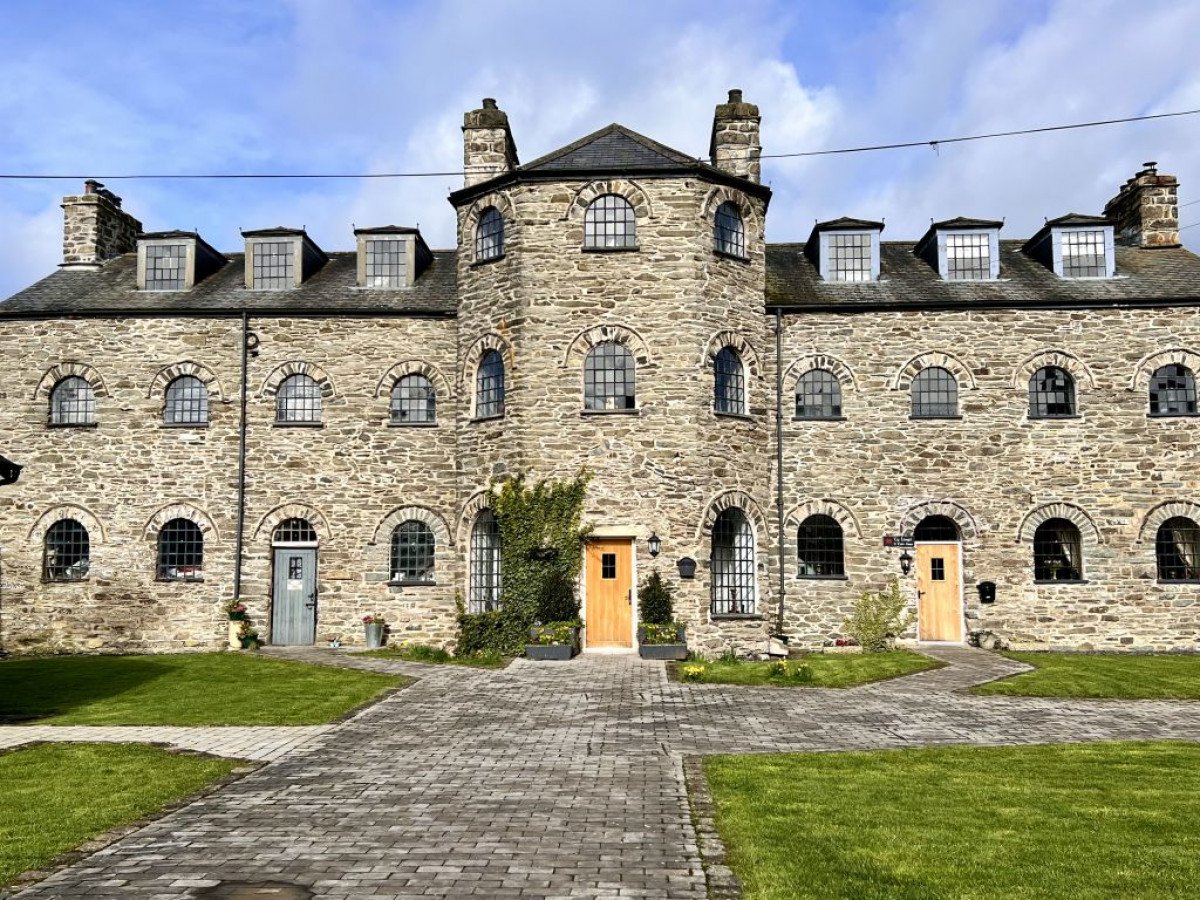Beyond Bricks And Mortar: Demystifying Property Surveys For Informed Decisions

Purchasing a home is one of the most significant financial commitments most of us are likely to undertake. It encompasses a multitude of considerations and potential stumbling blocks. But as part of the complex process, many overlook the critical importance of a thorough property survey.
There are several types of property surveys available, each tailored to different needs and circumstances, and the choice can be overwhelming for those unfamiliar with the process. As one of the primary checks homebuyers should make before signing on the dotted line, this is a complete guide to property surveys to help buyers make a more informed decision.
Types of Property Survey
RICS HomeBuyer Survey
The RICS HomeBuyer survey is a mid-level report suitable for properties in reasonable condition. It provides an overview of the property's condition and highlights any urgent defects or potential issues that need attention. This report is recommended for conventional homes up to 150 years old and those built with common building materials. A HomeBuyers report offers a cost-effective option for buyers seeking a professional opinion on the property's overall state.
RICS Building Survey
For those purchasing an older property, a listed building, or a home in need of significant repairs or renovations, the RICS Building Survey is the most comprehensive option. This in-depth inspection covers all accessible parts of the property, including the structure, exterior and services. The surveyor will provide detailed information on the condition of each element, highlight potential issues and suggest further investigations if needed. While more costly than other options, the Building Survey offers invaluable insights for complex properties.
RICS Condition Report
The RICS Condition Report is a basic survey best suited for new-build homes or modern properties in good condition. It provides a simple traffic light rating system for different aspects of the property, indicating areas of concern. This report offers a high-level overview of the property's condition but does not go into the same level of detail as the HomeBuyer Report or Building Survey.
Specialist Surveys
Homebuyers may also want to consider specialist surveys. These can include damp surveys to assess moisture levels and potential rot, electrical and gas safety inspections for older homes, or structural engineering surveys for properties that have evident structural issues or subsidence concerns. These specialised surveys provide targeted insights into specific areas of potential risk, and can be carried out in addition to a more general survey.
What Does the Survey Process Involve?
Once you've determined the appropriate survey type, it's time to hire a qualified and accredited surveyor. This is a crucial step – the surveyor's expertise and attention to detail can significantly impact the quality and accuracy of the report. Be sure to check reviews or seek out recommendations from trusted sources. You'll also need to ensure that the surveyor is a member of a recognised professional body, such as the Royal Institution of Chartered Surveyors (RICS).
Make sure the property is accessible, including any outbuildings or loft spaces that need to be inspected. This will typically involve liaising with the seller or estate agent managing the property prior to the survey taking place. The surveyor will then examine the interior and exterior of the property, meticulously examining the roof, walls, floors, foundations and essential systems like plumbing, electrics and drainage. They search for hidden defects, potential problems and signs of wear and tear, providing an unbiased assessment alongside estimates for any recommended repairs.
Once the survey is complete, the surveyor will provide a detailed report outlining their findings. This will typically include a description of the property, an assessment of its overall condition, and specific observations and recommendations for each element inspected.
Interpreting the Results of a Property Survey
A property survey provides detailed information about the boundaries, dimensions and physical features of the building in question. By studying a survey, you can gain insight into the exact size and shape of the property, including any encroachments, easements or rights-of-way that may affect its use.
As mentioned earlier, property surveys take the form of a traffic light system to make identifying any immediate threats or hazards easier. As you would expect, those coded red are an emergency and need to be dealt with immediately, while amber are a concern and should be fixed in time; anything coded as green is an element that doesn't have any issues.
Additionally, surveys often include information about structures on the property, such as buildings, fences and utility lines. This knowledge is crucial for making informed decisions about land use, development and legal rights.
What Does a Property Survey Cost?
The time it takes to complete a property survey can vary depending on the type of survey and the surveyor's workload. Generally, reports are completed within a week. For the more comprehensive RICS Building Survey, the turnaround time can range from one to two weeks, as it involves a more in-depth inspection and detailed reporting. This can impact the cost of the survey.
It can also fluctuate based on the size and location of the property and whether any additional specialised inspections are needed. For example, if you're buying a property worth £200,000, the most basic type of home survey will cost in the region of £400. But a full structural survey for a million-pound home will cost around £1,500.
Is a Property Valuation Different from a Property Survey?
Yes, a property valuation primarily aims to ascertain the property's monetary value, while a property survey delves deeper into both the value and the structural conditions of the building, identifying potential risks and necessary alterations. A property survey entails a comprehensive on-site examination, while a property valuation can often be carried out remotely.
Ultimately, a property survey is an invaluable tool that can uncover potential issues, highlight areas of concern, and provide a comprehensive understanding of the property's condition. Armed with this knowledge, homebuyers can negotiate with sellers, address identified problems before they get the keys, or even make the difficult decision to walk away from a property that poses too great a risk.
Image is from 'The Old Workhouse', a Gothic style grade II listed property available April 2024. For the full listing, please click here.
Subscribe to our blog for the latest property news!
Company Registered in England and Wales | Company Name: Griffin Property Co | Company Reg No.09362284



















